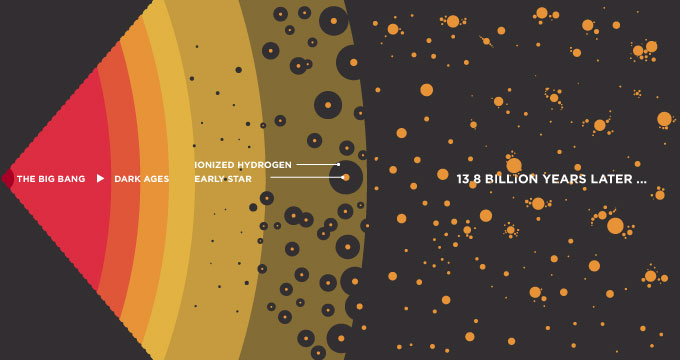#AdventUs “At the time that was a marker for the beginning of His reign, the God of everything formed and gave meaning to all that was chaos.” Genesis 1:1 (paraphrased)
Or; as most people have heard it, “In the beginning, God created the heavens and the earth.”
Boom. Simple, to the point, easy to understand. For a Westerner, anyway.
You really could examine one passage of writing and develop theories and suppositions and derive meaning from it a thousand different ways. Now, there will always be interpretations that are closer and further away from the original meaning, but in a lot of cases (since the Bible wasn’t written in English) it’s actually IMPOSSIBLE to fully pull out all the meaning of a text, and still be speaking conversationally.
The paraphrase at the beginning is an attempt at that, but you can see it’s much longer than the more well-known “In the beginning…”
בְּרֵאשִׁית בָּרָא אֱלֹהִים אֵת הַשָּׁמַיִם וְאֵת הָאָֽרֶץ
That’s the original Hebrew.
Bereisheet bara Elohim et hashamayim ve’et ha’aretz
That’s the original Hebrew transliterated (which means made so that an English speaker can sounds it out).
And just for fun, here is how it sounds.
Broken down into their individual meanings, you start to get a sense for what the author was trying to say. So let’s begin:
Bereishit is a word that has a couple parts.
“Be-” = at
“-reish-” = head, start, top
“-it” = of
Interestingly, this word in this configuration is also to describe a King coming into power to reign, notably in Jeremiah 26:1, where Jehoiakim assumes rule.
bara means create.
…sort of. A lot of Christians will teach that God created out of nothing. There’s a fancy Latin term; ex nihilo which translated, means “of nothing”. Originally, ex nihilo was a philosophical term; used in phrases like ex nihilo nihil fit, which Billy Preston later used to write Nothing from Nothing.
But applying this idea of nothing to creation isn’t really in the text. The verse doesn’t talk about the concept of “nothing” at all, just that God created. Bara is many times in the Bible, and it’s often translated as “create”, but can also mean cut, divide, choose, change form, pare down, and shape. John H. Walton described it as “assigning roles” to something, much selecting a piece of wood from which to make a carving, and then carving it. This whole act would be encompassed in bara, and it is always an act performed by God.
Elohim means God, but it means the God of all gods, including those of other nations.
et hashamayim ve’et ha’aretz means everthing. Literally it means “the heavens and the earth”, with shamayim meaning heavens (note the plural, so all of them). It’s a figure of speech which means “everything”. However, I think “everything” doesn’t quite translate perfectly, because He made all that aren’t things as well. So; “all”.
So then, there’s this question about the chaos. Did God create out of nothing nothing? Or was there this chaos stuff for Him to work with? Or did He create ex deo, out of Himself?
I don’t think it really matters. The text seems to imply He divided everything out; like starting with this massive unshaped piece of clay, and assigned everything roles like my daughter does creating clay animals all over the kitchen table. Even when He made Adam, He makes him from dust.
That doesn’t diminish His power for me.
So then there’s this big elephant in the room; The Big Bang.
At some point, and I’m not entirely sure when, scientists and Christians stopped getting along. Sometime after Isaac Newton. But at some point, Christians stopped believing what scientists had to say, feeling that it came into conflict with the Bible as an inerrant (flawless) document, and began seeing them as enemies.
I don’t hold the view that science is the enemy at all; and maintain that science and faith can mix. Actually; that doesn’t quite describe it. I believe God created everything, and that science helps explain how He did it. God made is curious, analytical, exploring people, and learning how this place He made for us works is an honour to him.
Hence the illustration at the beginning (created by the amazing Charles Shockley). Currently, scientists are telling us the Universe is 13,820,000,000 years old. And they’s probably room for refinement. That particular number was only solidified last year, using some of the best technology we had to measure and analyze the light coming from the very farthest reaches of the Universe.
Which, to me, as a Christian, is peering back to this very verse.
To see what God was doing.
In that light (haha), Gregory Koukl says it best: “If our eyes and our instruments can be trusted, then the universe is ancient. When the Bible tells us to behold the stars, it speaks the truth.”

